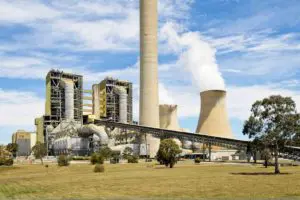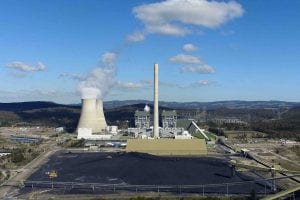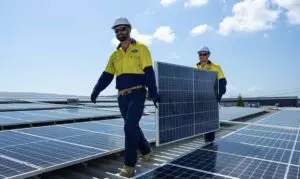Japan’s new prime minister Yoshihide Suga announced this week his country’s climate change policy of carbon neutrality by 2050. This is the latest major economy to announce their push towards a carbon neutral future. The others include Europe and China. And it was quickly followed by South Korea.
Europe’s environment ministers reached a partial agreement last week and adopted a common position on the planned EU climate law, which will make the goal of climate neutrality by 2050 legally binding.
While part of Europe’s green recovery plans, the goal to achieve carbon neutrality dates back before the impacts of COVID-19.
The European Commission first set out its vision to achieve a climate-neutral European Union until 2050, in November 2018. This vision was in line with the aims of the Paris Agreement to limit global warming to “well below 2°C above preindustrial levels and pursuing efforts to limit the temperature increase to 1.5°C above pre-industrial levels”.
The European Parliament endorsed the objective of net-zero greenhouse gas emissions by 2050 on March 14, 2019. Subsequently, the European Council approved the goal of a climate-neutral EU by 2050 on December 12, 2019.
The goal of the European Commission is to achieve a European “Green Deal”, an intended growth strategy which aims to transform its 27 member states from high- to low-carbon economies while not reducing prosperity.
Europe’s leadership position on carbon neutrality has not remained unchallenged.
Just last month, Chinese President Xi Jinping announced China’s aim to become carbon neutral before 2060, and to start cutting its emissions within the next ten years. Japan’s newly elected Prime Minister Yoshihide Suga made a similar announcement for Japan this week.
What does carbon neutrality mean, and is it achievable?
Carbon neutrality refers to any emissions of carbon that are balanced with their removal (through offsetting) or storage (through carbon capture and storage). It also involves strategies to avoid carbon emissions in the first instance through a shift towards alternative or low-carbon energy sources.
Carbon neutrality extends to other greenhouse gases, not just carbon emissions, and is generally seen as a feasible strategy in the long run.
However, carbon neutrality requires a significant transformation of the economy, including a shift in the production of energy away from fossil fuels (coal, oil and gas) towards renewables, the implementation of better energy storage solutions, a significant uptake of sustainable living options (household solar, public transport), a substantial shift in transportation away from petrol-fuelled cars, as well as a substantial transformation in other sectors, including agriculture.
It also means further development of alternative energies such as hydrogen technology.
EU climate law will not lead to instantaneous changes as the adoption of any new legislation will have to be funnelled through the various layers of its own bureaucracy. It has put in interim targets in place, but these are challenging.
The standout country is Germany that will achieve its climate target in 2020. This is partly because of the country’s substantial slowdown in economic activity due to COVID-19.
China might be in a better position to push large-scale changes through its political apparatus and because of its long history of state involvement in the economy.
It also does not have to grapple with an electorate potentially opposed to changes.
So, how will carbon neutrality be funded?
The European Commission initially estimated 1 trillion Euros is needed to fund a carbon-neutral transition. It’s now committed to injecting 750 billion Euros into priority areas of health and climate change because of COVID-19.
The question to ask now is can we trust China’s and Japan’s recent announcement to move towards carbon neutrality?
Their announcement was most likely not just due to newfound concerns about saving the climate, but about becoming the world market leader in emission-free future technologies.
The integration of climate-neutrality into a legally binding framework in the European Union will have far-reaching consequences as there are likely mandates for companies and industry sectors to operate within the legally binding climate targets.
Europe’s recent push towards a green recovery is another sign that climate-neutral solutions are the future.
China, already a substantial producer and consumer of clean energy and low-carbon technologies, will not want to miss out. The same is true for Japan.
What does this all mean for Australia?
Our political and business leaders will need to think carefully about how to future proof for the rapidly changed international policy and climate landscape.
Europe, China and now Japan and South Korea’s push towards carbon neutrality is likely to accelerate international clean tech development, and prompt other nations to accelerate their plans.
Macquarie Business School research shows the total global development of clean technology patents in areas such as bio-fuels, fuel cells, hydro energy, wind energy, solar energy, and geothermal energy by 2050, with wealth creation in estimated to be around $13.69 trillion to $20.87 trillion in these areas. Both Japan and China have built up high levels and high growth rates of cleantech patents over the last decades.
While fossil fuels are likely still in demand in over the next decade given China’s and Japan’s appetite, a rapid decline is on the horizon where we are likely to see a rapid development of technologies such as green hydrogen.
Australia would be well-placed to focus its efforts on not losing out on the carbon neutral race.
So, Scott Morrison is a lone voice on the international stage. He’s the only leader that thinks a COVID-19 led recovery can be built on a fossil fuel – gas.
Professor Martina Linnenluecke heads the Macquarie Business School’s Centre for Corporate Sustainability and Environmental Finance at Macquarie University.







